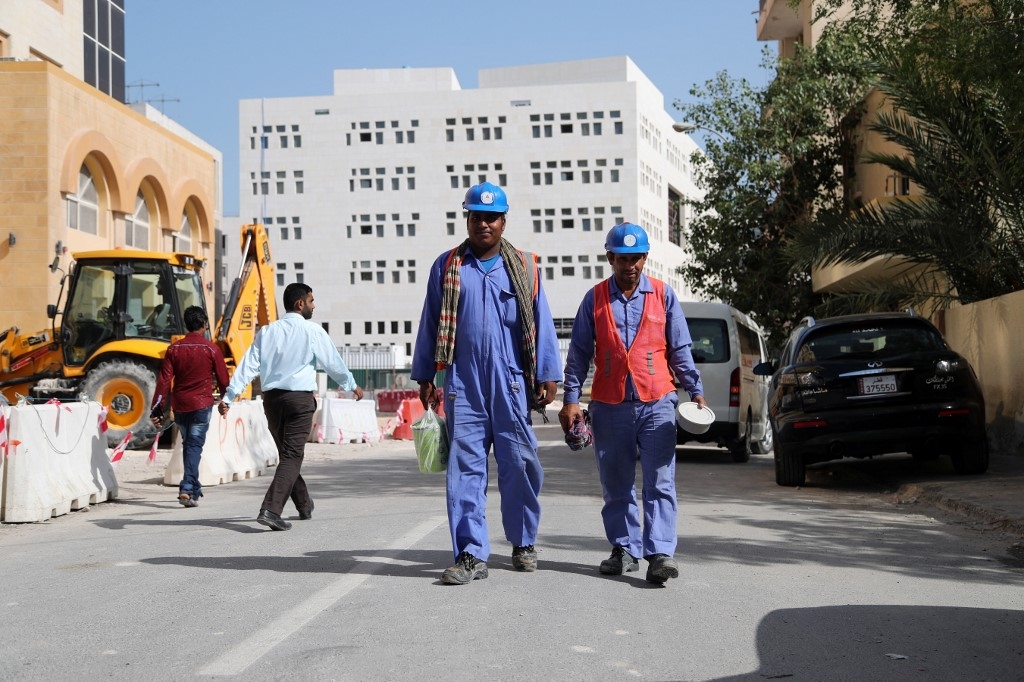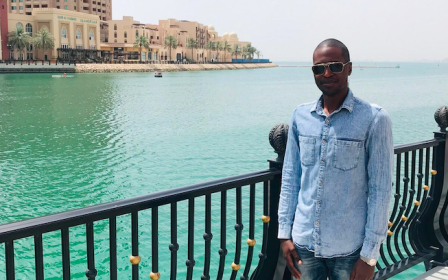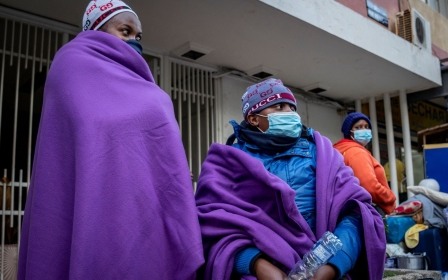Qatar detains workers who held rare protest over unpaid salaries

Qatar has detained more than 60 workers who held a rare protest against unpaid wages, with some threatened with deportation just months before the FIFA World Cup.
Migrant Rights, an NGO based in GCC, said the Al Bandary Engineering and Electro Watt Company had not paid its workers for the last six months.
Both companies are owned and operated under the umbrella of the Bandary International Group. The company's website says Qatar had awarded it some of the biggest projects in Qatar worth millions of Qatari riyals.
Detained workers told Migrant Rights that at least 25 to 30 people are being kept in one room. According to the NGO, some workers said Qatar had deported several workers already with only part of their pay settlement.
"[The detained workers] say that officials have switched off the AC, taunting them that if they can protest in the heat, they can manage without it," Migrant Rights wrote on Twitter.
"Temperatures this week are reaching 40 degrees Celsius."
Qatar did not comment on these allegations at the time of writing.
Workers and trade union representatives told the NGO that the company had promised them their salaries on 11 August.
But when they were denied their wages and had the electricity cut from their company-owned accommodation, the workers went on strike.
Workers right to protest violated
Last Sunday, 200 workers took to the streets of Doha to demand their unpaid wages outside the Bandary International Group's offices in Qatar.
Images posted online showed workers gathering outside the engineering company shouting slogans and demanding their unpaid salaries.
Al Bandary International Group did not respond to Middle East Eye's requests for comment at the time of writing.
Equidem, a rights NGO that focuses on labour rights in the Gulf, said it was concerned by reports that Qatar had arrested workers for peacefully protesting.
"Equidem is concerned that Qatar authorities have violated the right of these workers to strike and peaceful assembly," Equidem said on Twitter.
"Some of these workers may have been subjected to ill-treatment in detention and have failed to ensure their employer pays the wages owed to them.
"We remain concerned that despite the labour reforms, Qatar appears far more willing to enforce laws to suppress strikes and deport workers who complain about treatment, in violation of Qatar's human rights treaty obligations, than punish companies that do not pay their workers."
Since being awarded the World Cup tournament, Qatar has been under intense pressure to reform its labour rights and ban the exploitative kafala system.
But despite making strides in labour reforms, migrant workers in Qatar are still banned from joining trade unions and participating in strike action.
Last year, hundreds of migrant workers in Qatar went on strike to protest poor working conditions, unpaid and delayed wages, and threats of reduced wages.
Middle East Eye propose une couverture et une analyse indépendantes et incomparables du Moyen-Orient, de l’Afrique du Nord et d’autres régions du monde. Pour en savoir plus sur la reprise de ce contenu et les frais qui s’appliquent, veuillez remplir ce formulaire [en anglais]. Pour en savoir plus sur MEE, cliquez ici [en anglais].





